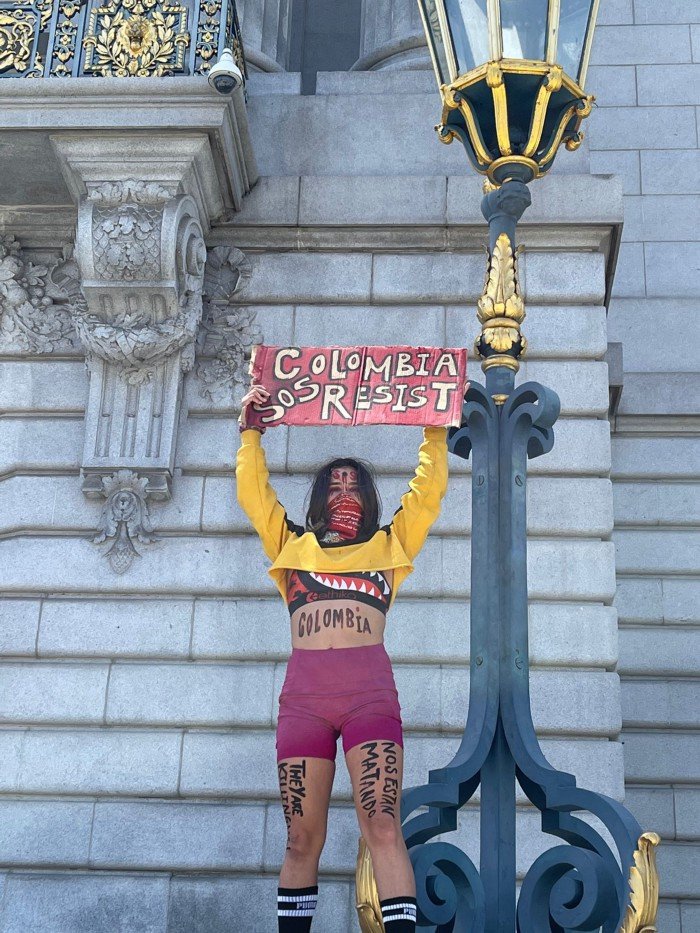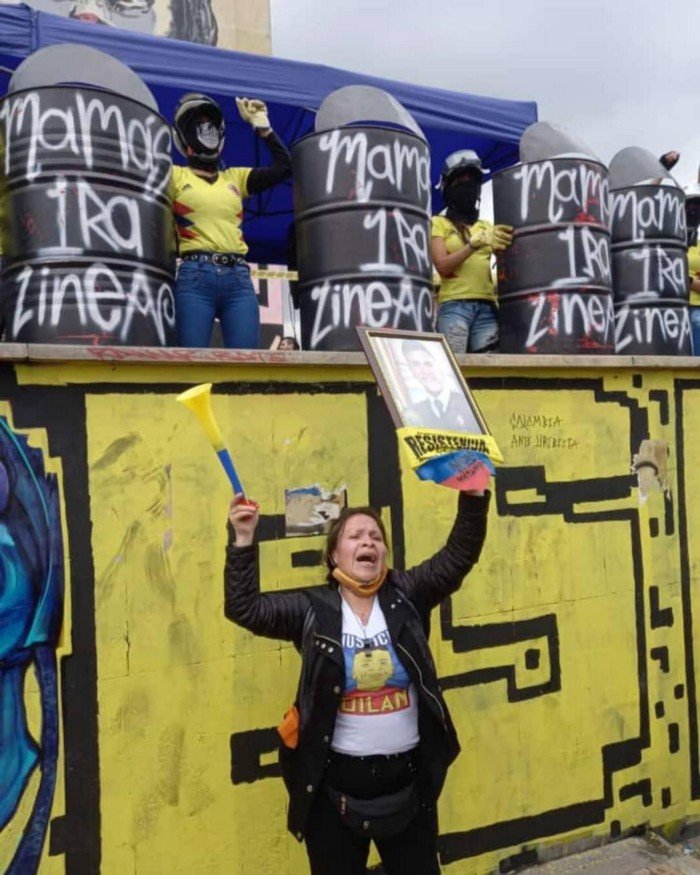How to Support Colombians Protesting for Human Rights
Today marks exactly one month of continuous protests in Colombia where the people have taken to the streets to call for an end to human rights violations and corruption in the government. Read this first-hand account from a friend on the ground (we are withholding their name for their safety).
Why are people protesting?
From the beginning of the “Paro Nacional” or National Strike on April 28th, Colombians across the country have been continuously protesting to speak up against many issues we face, including: political corruption, increased taxes during the pandemic, environmental injustice and human rights violations. The city of Cali has been a symbol of resilience for the entire country and it’s the epicenter of the protests. It’s been the place most hard hit by police violence and murders.
President Ivan Duque’s right-winged government intends on taxing an already impoverished working and lower class that has suffered greatly during the Covid pandemic — with little to no government support. The tax reform proposed to raise equivalent to 2% of GDP or 25.4 billion pesos — about US$6 million. This might not seem like that much in the US, but it’s taxing essential goods and services and taxing people with very low income.
“The proposed reform would have lowered the threshold at which salaries are taxed, affecting anyone with a monthly income of 2.6m pesos ($684; £493) or more,” quoted from BBC news. [Ed. Note: the original tax reform that was proposed has been withdrawn for now.]
Aside from the tax reform, Colombia’s corrupt government has been violating human rights by assassinating, torturing, raping and disappearing protesters throughout the country — especially Cali and its department [region] of the Valley of Cauca. And this is on top of decades of inequality and corruption that have left the lower and middle classes in dire circumstances with little physical safety or reliable health care, very few opportunities for education or stable jobs, and recurring civil war.
Miembros del Esmad arremetan contra ciudadana colombiana en Bogotá. © Héctor Fabio Zamora / El Tiempo.
What are the human rights violations happening right now?
Young protesters on the frontline are being murdered and found dismembered and floating in rivers, most frequently in the Rio Cauca. During peaceful marches, the people marching in the front are having to shield themselves and the crowd with trashcans and anything they can get their hands on to prevent being either shot or sprayed with tear gas. Watch this Facebook story from Madres en Primera Línea (Mothers on the Frontline) to see it. Women in particular are suffering from extreme violence.
Madres en Primera Línea. Fotografía de la madre de Dilan Cruz. © Hanna Bohórquez.
There has been documentation of 42 civilian protesters killed in Colombia since the start of protests, however this number is grossly misrepresented and I think it is likely in the hundreds. Cali’s most affected neighborhoods are known as resistance points. One resistance point is Siloé, one of Cali’s most neglected and impoverished neighborhoods. Siloé has reported being cut off from basic human needs such as energy and telecommunications. There are dozens of people missing from this neighborhood and other resistance points. People on the street report that Colombian police are firing bullets and tear gas indiscriminately into crowds, into businesses and into people’s homes. People are capturing many videos of this on their cellphones, but the videos get taken down from Facebook.
How does this impact the environment?
The implications of corruption in Colombia are that the country has failed to provide adequate education to more than half of the population, environmental defenders are frequently assassinated, and protected areas are neglected. Poverty has increased in Colombia during the pandemic as well as unemployment. This has in many ways affected the environment as people are desperate to help their families survive. Illegal logging and poaching has increased substantially, making Colombian endangered and endemic species high on the list of extinction.
What can you do to help?
Unfortunately, the government controls news outlets, so they are not showing the reality of the protests and the injustices that are traumatizing entire communities throughout Colombia. Please share the news of what is happening on social media, so that we can get more eyes on Colombia and pressure the government to make change.
I urge you to donate to this GoFundMe as well as this fundraiser to support the frontline Colombians who are fighting for justice. These donations will be used to distribute food and supplies to the frontline as well as the neighborhoods that are most hard hit. Supplies include medical supplies for injured and meals for protesters and those displaced. These funds will also help organize and maintain brigades, which are tending to wounded people. Help us organize to help families locate their missing loved ones and bring those accountable to justice.
[Ed. Note: For a good explainer that provides further information about the protests and their causes, read an article at the AP here.]



